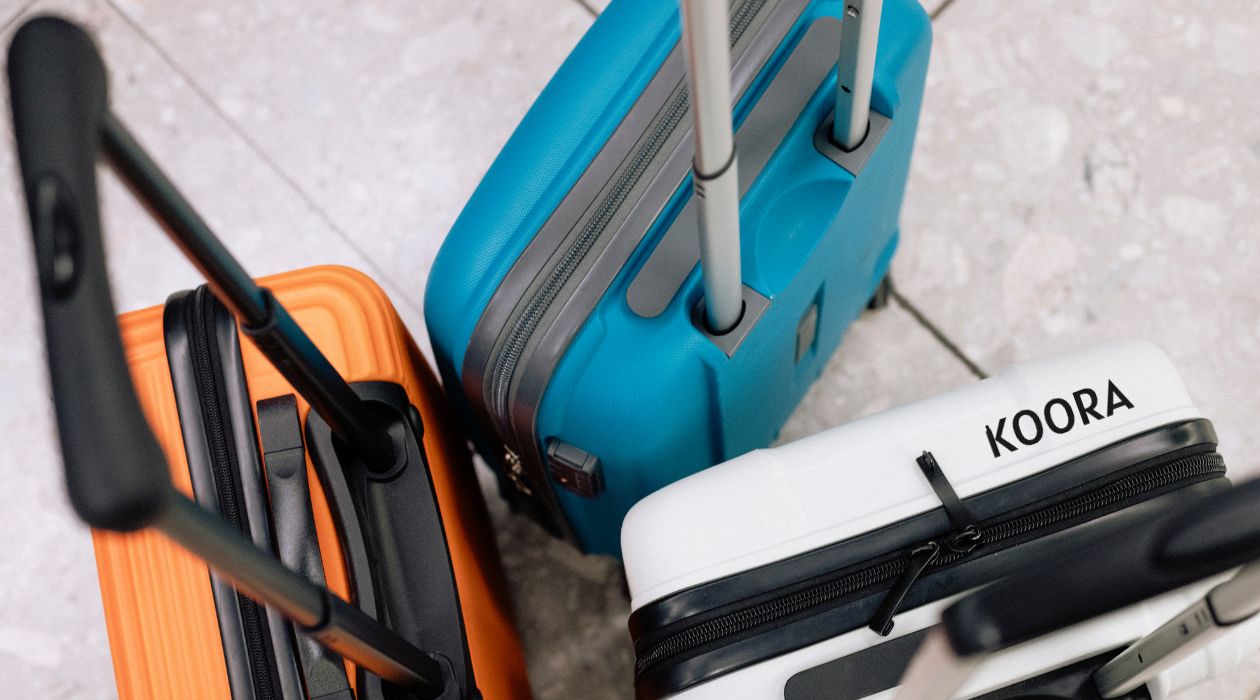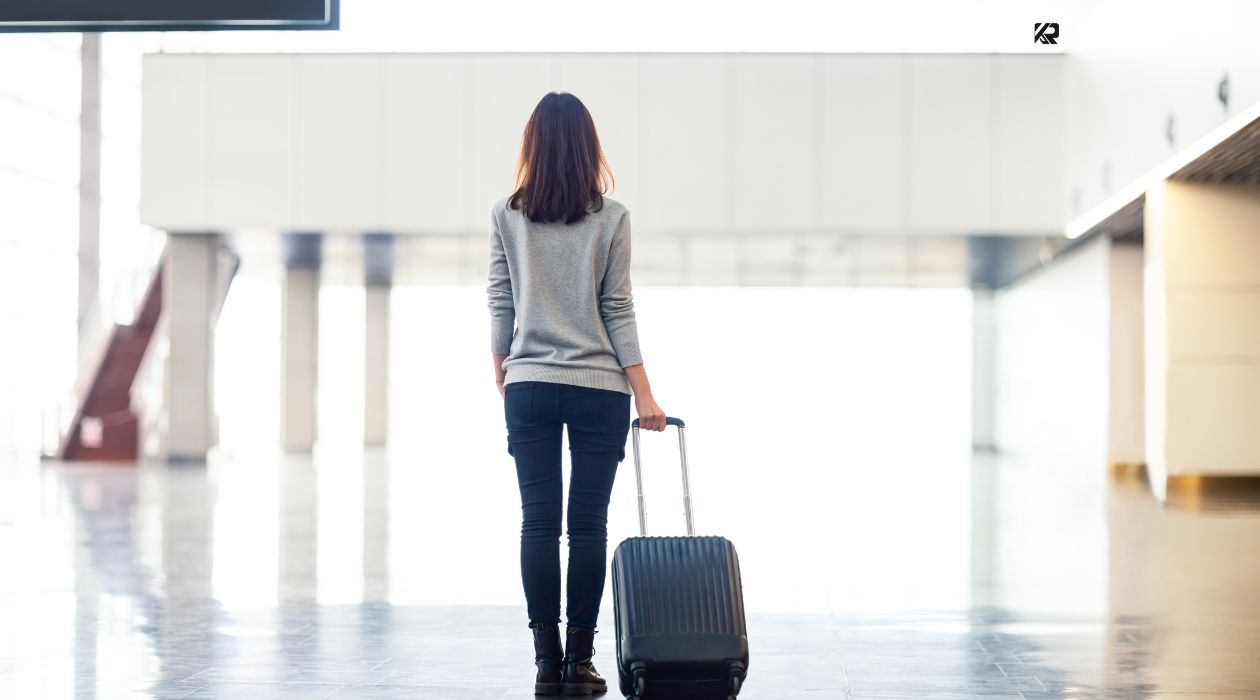
Why Eco-Conscious Travellers Are Ditching Traditional Suitcases
Travel has gone beyond where we go; it’s about how we travel. Eco-mindful travellers have changed the way we consider packing, travelling and the gear we move. The largest of all changes is trending. The tides are now shifting on the high street with the increasing number of passengers giving up the use of traditional types of suitcases in favour of eco-friendly, sustainably manufactured pieces of luggage.

For brands like Koora, the Australia-based sustainable luggage brand, this isn’t a trend; it is a step towards a more responsible way of travel. That’s why conscious travellers are turning to it, and what it does for the Earth.
1. The Hidden Cost of Traditional Suitcases
For decades, the luggage industry has thrived on synthetic materials, mass production, and short product lifespans. Many traditional suitcases are made with virgin plastics, animal-derived leathers, and polyester fabrics — all of which have a heavy carbon footprint.
The issues don’t stop at materials:
-
Energy-intensive manufacturing processes release greenhouse gases at every stage of production.
-
Low repairability means broken zippers, cracked shells, or worn wheels often lead to the entire suitcase being discarded.
-
Landfill accumulation grows as millions of old, unrecyclable suitcases are thrown away each year.
Eco-conscious travellers, aware of these impacts, are no longer willing to carry luggage that leaves such a large environmental footprint.
2. Sustainability as a Travel Mindset
Sustainable travel is more than just booking environmentally friendly lodgings or carbon offsetting flights; another lifestyle. All the things that a traveller is carrying are included in their environmental imprint.
-
Using sustainable luggage will fit into other green habits of travellers.
-
Travelling light to increase the amount of fuel one can use in road trips and flights.
-
Bringing durable equipment that is repairable rather than one that can be discarded.
-
Selecting ethically produced goods, those that contribute to good wages/safe working conditions.
By so doing, luggage turns out to be a badge of a traveller who is devoted to conscious travel.
3. The Rise of Recycled and Plant-Based Materials
The insertion of recycled and plant-based materials has been one of the most important transformations in the design of luggage. Major forward-looking brands are demonstrating that it is not important to use virgin plastics or animal leather to be durable and stylish.
Examples include:
-
Recycled Polycarbonate shells: Heavy and light, and of the composition are: Recycled polycarbonate.
-
Vegan Leather Alternatives: These are materials such as cactus, pineapple leaves or apple peels, which are as tough as traditional leathers in quality.
-
Organic Cotton Linings: No synthetic fibres, low-impact, natural pigments are used as a dye.
Koora takes a different approach by using recycled materials in its hard-shell cases, a combination of recycled polycarbonate and vegan trims, giving the traveller a high-performance case without ever compromising the planet.
4. Durability Over Disposability
Traditional luggage often follows a "buy, break, replace" cycle, designed with planned obsolescence in mind. Cheap materials and weak construction lead to short lifespans — which is bad for both the planet and your wallet.
Eco-conscious luggage brands flip that model by:
-
Reinforcing structural integrity so bags survive years of heavy travel.
-
Designing modular components like wheels, handles, and zippers that can be replaced easily.
-
Offering repair services instead of pushing customers to buy new products.
The result? A suitcase that’s built to travel with you for decades, not just a few trips.
5. Supporting Ethical Production
Along with the environmental issues, the other factor influencing eco-conscious travellers is ethical sourcing and labour transparency. The conventional use of suitcases can easily involve low-cost cost high-volume manufacture in factories where labour rights are unprotected.
It is against that sustainable luggage companies are fighting:
-
To partner with local craftsmen to create for co-finish.
-
Equal remuneration and safe workplace conditions within the supply chain.
-
The choice of certified suppliers who also meet the international environmental and labour standards.
The collaborations that Koora has with artisans mingle contemporary design and traditional craftsmanship so that every object will be as carefully produced as it is gorgeous.
6. Aesthetics Meet Purpose
The next myth is concerned with looking simple and ugly as sustainable products. As a matter of fact, eco-friendly luggage companies are already providing fine, cutting-edge designs to rival and even to exceed the conventional suitcase look.
It is a clear shift of focus: travellers no longer have to sacrifice their appearance to make a sustainable choice. Modest forms and silhouettes, dull matte surfaces, considerate colour schemes turn sustainable luggage into the fashion choice and statement accessory that makes history, reflecting both personal preferences and sensibilities.
7. Travelling With a Story
Eco-minded travellers tend to consider luggage as something more than a utilitarian object. A bag made of fishing nets obtained as waste gives an ice-breaker. A hand-finished product by an artisan is an eye-catcher.
Each Koora suitcase, say, tells a story: in the recycled material of its shelling, in the handcrafting of trims, in the watershed lower-carbon construction. Tourists just adore recounting such facts, and they make others think not only about more environmentally friendly options.
8. The Influence of Social Media and Awareness Campaigns
Sustainable travel products have gained higher awareness through the use of social media. Travel bloggers, eco-activists, and influencers consistently place eco-friendly luggage advertisements with the focus on the impact of buyer choice.
Certifications (B Corp, Global Recycled Standard, PETA-approved vegan) and awareness campaigns ensure that travellers can find out which products can be considered as truly sustainable and avoid greenwashing.
This exposure has helped facilitate more green-minded travellers to find and invest in sustainable state suitcases- and hold brands we call out on their assertions.
9. The Practical Side: Lighter and Smarter Designs
Not only is sustainable luggage good for the planet, but it usually proves more functional than conventional pieces.
-
The fact that the materials are lightweight helps travellers carry more without going beyond the weight limit of their airlines.
-
Comfortable handles and wheels made of smooth material are also ergonomic.
-
Space-saving storage is designed to house minimal packers, as well as those who have limited space to live in.
Using eco-friendly materials along with clever construction, brands such as Koora are able to improve the total passenger experience.
10. The Future Is Circular
Eco-conscious travellers are also driving the shift toward circular economy models in the luggage industry. Instead of a linear "make, use, discard" system, circular design focuses on:
-
Using materials that can be recycled back into new products at the end of their life.
-
Offering buy-back or trade-in programs for old suitcases.
-
Designing for disassembly, so components can be replaced or recycled easily.
Koora’s commitment to repairability and recyclable materials positions it firmly within this future-focused approach.
Making the Switch: How Travellers Can Join the Movement
If you’re considering upgrading your travel gear, here’s how to make the change sustainably:
-
Research the brand’s values and certifications.
-
Invest in quality. A higher upfront cost is worth the years of use.
-
Choose repairable luggage with modular parts.
-
Opt for recycled or plant-based materials.
-
Consider second-hand or refurbished luggage if available.
The Bottom Line
Green-conscious travellers are ditching their conventional suitcases, and there is a good reason as to why: eco-friendly luggage offers too many environmental, ethical and practical advantages to pass up.
As brands such as Koora continue to innovate in their Eco-ethos, involvement in artisan societies and long-lasting suitcases, the case and bag may be just as conscious a decision as your travel itself.
Lastly, these adventures are not worth doing unless they leave nothing but memories and less of a mark on the world.



Leave a comment
This site is protected by hCaptcha and the hCaptcha Privacy Policy and Terms of Service apply.